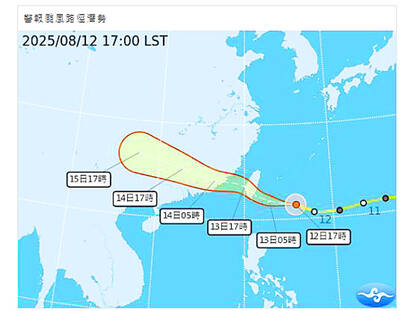Hezbollah on Friday denounced a senior Pentagon official's call for a US "strategic partnership" with the Lebanese army, saying US attempts to boost military ties were a ploy for domination and could turn the country into another Iraq.
Washington has dramatically increased military aid to Lebanon's pro-Western government over the past year. On Thursday, US Undersecretary of Defense for Policy Eric Edelman said the US wants to make military ties even closer, with a "strategic partnership" to strengthen the country's forces.
Edelman said in an interview with Lebanese Broadcasting Corp television that the building up of the military would mean Hezbollah would have no excuse to bear arms.
He comments came on the same day a Lebanese newspaper reported that Washington was proposing a treaty with Lebanon that would make it a strategic partner and lead to the creation of US bases.
The Lebanese government and the US ambassador in Beirut denied the report in the As-Safir newspaper and Edelman made no mention of bases in his comments.
The comments and the newspaper report brought quick condemnation from Hezbollah, an ally of Syria and Iran and the leading political opposition to the anti-Syrian government. The opposition, which is locked in a power struggle with the government, already accuses Lebanese Prime Minister Fuad Siniora of being too close to the US.
In a statement on Friday, Hezbollah said the US efforts were "part of a comprehensive plan to link Lebanon with the American project for the region ... under deceitful banners such as strategic partnership," it said.
Hezbollah, which Washington characterizes as a terrorist organization, accused the US of "interference" in Lebanese affairs, saying the US plan "and the dangers it encompass[es] could turn the country into another Iraq."
Some in Lebanon have expressed fears that a foreign military presence could attract al-Qaeda and other militants, as has happened in Iraq.
Syria, meanwhile, accused the US of threatening Lebanon's stability with its backing of the government in the country's political turmoil. In a letter sent to the UN on Thursday, it said US interference "has so far deepened divisions" by "clearly and openly siding with one Lebanese side after the other."
After last year's Israeli invasion of Lebanon, the US sharply increased its military assistance to Lebanon to US$270 million this year -- more than five times the amount provided a year ago -- in a show of support to Siniora.
Meanwhile, French Foreign Minister Bernard Kouchner, Italian Foreign Minister Massimo D'Alema and Spanish Foreign Minister Miguel Angel Moratinos arrived in Beirut late on Friday in the latest international bid to end a standoff between the government and the Hezbollah-led opposition.
Kouchner said on arrival that he had come to try and ensure the election within the constitutional deadline of a president who enjoys "backing from all communities."
The Lebanese parliament is scheduled to meet on Tuesday to elect a new president, but all indicators point to the session being postponed because of disagreement between the feuding factions, as also happened last month.

DEFENSE: The first set of three NASAMS that were previously purchased is expected to be delivered by the end of this year and deployed near the capital, sources said Taiwan plans to procure 28 more sets of M-142 High Mobility Artillery Rocket Systems (HIMARS), as well as nine additional sets of National Advanced Surface-to-Air Missile Systems (NASAMS), military sources said yesterday. Taiwan had previously purchased 29 HIMARS launchers from the US and received the first 11 last year. Once the planned purchases are completed and delivered, Taiwan would have 57 sets of HIMARS. The army has also increased the number of MGM-140 Army Tactical Missile Systems (ATACMS) purchased from 64 to 84, the sources added. Each HIMARS launch pod can carry six Guided Multiple Launch Rocket Systems, capable of

GET TO SAFETY: Authorities were scrambling to evacuate nearly 700 people in Hualien County to prepare for overflow from a natural dam formed by a previous typhoon Typhoon Podul yesterday intensified and accelerated as it neared Taiwan, with the impact expected to be felt overnight, the Central Weather Administration (CWA) said, while the Directorate-General of Personnel Administration announced that schools and government offices in most areas of southern and eastern Taiwan would be closed today. The affected regions are Tainan, Kaohsiung and Chiayi City, and Yunlin, Chiayi, Pingtung, Hualien and Taitung counties, as well as the outlying Penghu County. As of 10pm last night, the storm was about 370km east-southeast of Taitung County, moving west-northwest at 27kph, CWA data showed. With a radius of 120km, Podul is carrying maximum sustained

Tropical Storm Podul strengthened into a typhoon at 8pm yesterday, the Central Weather Administration (CWA) said, with a sea warning to be issued late last night or early this morning. As of 8pm, the typhoon was 1,020km east of Oluanpi (鵝鑾鼻), Taiwan’s southernmost tip, moving west at 23kph. The storm carried maximum sustained winds of 119kph and gusts reaching 155kph, the CWA said. Based on the tropical storm’s trajectory, a land warning could be issued any time from midday today, it added. CWA forecaster Chang Chun-yao (張竣堯) said Podul is a fast-moving storm that is forecast to bring its heaviest rainfall and strongest

TRAJECTORY: The severe tropical storm is predicted to be closest to Taiwan on Wednesday and Thursday, and would influence the nation to varying degrees, a forecaster said The Central Weather Administration (CWA) yesterday said it would likely issue a sea warning for Tropical Storm Podul tomorrow morning and a land warning that evening at the earliest. CWA forecaster Lin Ting-yi (林定宜) said the severe tropical storm is predicted to be closest to Taiwan on Wednesday and Thursday. As of 2pm yesterday, the storm was moving west at 21kph and packing sustained winds of 108kph and gusts of up to 136.8kph, the CWA said. Lin said that the tropical storm was about 1,710km east of Oluanpi (鵝鑾鼻), Taiwan’s southernmost tip, with two possible trajectories over the next one